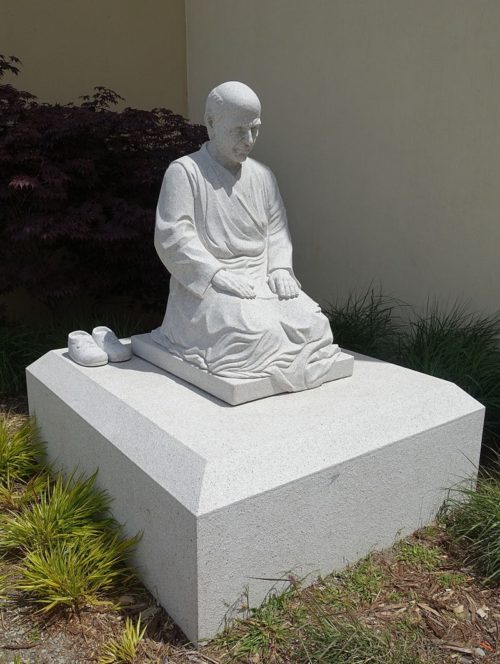In her book, Help Thanks Wow, Anne Lamott tells the story of the priest, Pedro Arrupe, who lived a remarkable life (Among other things, he was in Hiroshima when the bomb fell, was one of eight priests who survived, and immediately went to work, serving the wounded).
Near the end of his life, he suffered a stroke that eventually took away his ability to speak.
And he wrote this:
*****************************************************************************************************************************
“More than ever I find myself in the hands of God.
This is what I have wanted all my life, from my youth.
But now there is a difference.
The initiative is entirely with God.
It is indeed a profound spiritual experience to know and feel myself so totally in God’s hands.”
*****************************************************************************************************************************
We’ve all said or prayed something like, “God, I want to be in your hands.”
But sometimes that looks so different from what we think, and we ask ourselves, “Do I really want to be?”
Well, the truth is — we already are entirely in God’s hands. At this moment.
But what made Arrupe’s experience different from yours or mine is that he finally felt he was entirely in God’s hands, and you and I might say, “God, I want to feel entirely in your hands,” but do we know what we ask?
It’s a scary mental place to go — the idea that we now feel completely, physically and mentally dependent on God’s mercy.
Emotionally, I don’t like that thought, and yet intellectually, there are no other hands that would give their life for you, while you cut those hands off and spit on him.
No one could love you that much.
And yet, it still scares us to be entirely in those hands.
We worry that he won’t really be Jesus to us.
But where has he always gone?
To the suffering.
The preacher Charles Spurgeon once said: “Jesus is touched, not with a feeling of your strength but of your infirmity….as the mother feels with the weakness of her babe, so does Jesus feel with the poorest, saddest, and weakest.”
I’d rather not be the poorest, saddest, weakest.
But if you feel that way this morning, remember that Jesus was poor, that he was a man of sorrows, and that he was naked, on a cross.
According to the world, he was the “poorest, saddest, weakest,” and so he is telling you, as one who went through it all, “I know what it’s like.”
In his book Gentle and Lowly, Dane Ortlund reminds us of something important about the term, “body of Christ.”
So often, we hear “body of Christ” and think of it in ecclesiastical terms. You know, the church that gathers.
But Ortlund urges us to look at our hurting bodies in the context of Christ, hurting as well.
He writes: “We are part of him. This is why the risen Christ asks a persecutor of his people, ‘Why are you persecuting me’?”
If you hurt, he hurts. Like any parent.
And as Spurgeon said in another sermon, “The eternal arms shall be lower than you are.”
It’s a “neither height nor depth” fact.
But I know that depression will lie to us about that fact.
And so if all of this doesn’t console you, don’t question your salvation or Christ’s love. That’s what depression will do. Make you doubt everything good, including a Father who loves you as much as his own son (John 17:23).
So, here’s my constant pitch again…
Here’s a psychiatrist near you.
And a therapist.
[Photo: Pedro Arrupe Memorial at the University of San Francisco, photo: Daderot]

